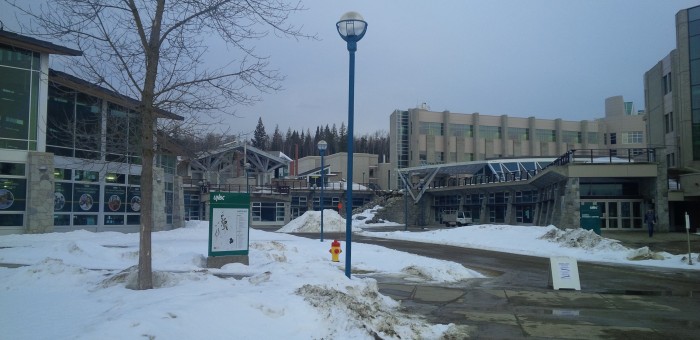Legislation
Introducing Right to Roam legislation in British Columbia
Today in the legislature I introduced a private member’s bill entitled Bill M223 — Right to Roam Act. This Bill reestablishes the rights of British Columbians to access public lands, rivers, streams, and lakes, and to use these spaces to fish, hike and enjoy outdoor recreation.
Increasingly, British Columbians are being fenced out of wild areas that have been enjoyed by the public for generations. One particularly high profile example involves public access to Minnie, Stoney and other lakes surrounded by Douglas Lake Ranch spread out over more than 500,000 acres. Approximately 365,000 acres are already crown land with full public access. But concern over access to several lakes was raised when Stoney Lake Road was suddenly gated in the late 1970s and subsequently locked in the early 1980s.
Below I reproduce the text and video of the speech I gave as I introduced the bill. I also include the accompanying media release.
Text of my Introduction
A. Weaver: I move that a bill intituled the Right to Roam Act, 2017, of which notice has been given, be introduced and read a first time now.
Motion approved.
A. Weaver: I’m pleased to be introducing a bill intituled the Right to Roam Act, 2017.
The ability to access and experience nature is a right for all British Columbians, and we must protect it. This bill will re-establish the rights of British Columbians to access public lands, rivers, streams and lakes and to use these spaces to fish, hike and enjoy outdoor recreation.
Hunting, fishing and outdoor recreation are a pivotal part of British Columbia’s heritage and form an important part of the fabric of present-day life in British Columbia. They are also vital to the understanding, conservation and management of fish and wildlife in our province.
Increasingly, however, British Columbians are being fenced out of wild areas that have been enjoyed by the public for generations.
One particularly high profile example involved public access to Minnie, Stoney and other lakes surrounded by Douglas Lake Ranch, spread out over more than 500,000 acres. Public access was prevented when Stoney Lake Road was suddenly gated in the 1970s and subsequently locked in the 1980s. This bill, which is built on a combination of B.C.’s existing Hunting and Fishing Heritage Act and Nova Scotia’s Angling Act, aims to address and prevent such conflicts.
I move that the bill be placed on the orders of the day for second reading at the next sitting of the House after today.
Bill M223, Right to Roam Act, 2017, introduced, read a first time and ordered to be placed on orders of the day for second reading at the next sitting of the House after today.
Video of my Introduction
Media Release
Weaver introduces Right to Roam Act
For immediate release
February 27th, 2017
VICTORIA B.C. – Locked gates on back roads are increasingly restricting access to wild lands in the province, making it harder for outdoors people to go hunting, fishing or hiking. A new bill tabled Monday by Andrew Weaver, Leader of the B.C. Green Party, would put a stop to that practice.
“British Columbians are increasingly being fenced out of the province’s wild lands. The ability to access and experience nature is a public right, and we must protect it,” says Weaver, who is the MLA for Oak Bay-Gordon Head. “Free public access to the outdoors is vital to people’s health and well-being, but it is also vital to the health and well-being of our environment. People protect what they know and love. If we become disconnected from our environment we risk disengaging with the fight for its future.”
In many regions of the province, the only way to access wild Crown lands is via logging roads, public back roads, or across privately owned forests and uncultivated areas. While casual public use of these accessways has not been an issue in the past, there is a growing trend of neighbouring landowners and forestry companies locking people out. Some are building fences and installing locked gates to block access altogether, others are implementing strict schedules or access fees. In extreme cases, British Columbians are getting arrested for trespassing while walking to public lakes they have been fishing for generations.
The Nicola Valley Fish and Game Club, a non-profit association dedicated to the local preservation and management of habitat and wildlife, for example, has spent years in a legal battle with the owner of the Douglas Lake Ranch over the public right to fish in public lakes..
“The Right to Roam Act aims to address and prevent conflicts like the Douglas Lake Ranch case. Nature in British Columbia should be open to all, not to just the privileged few,” says Weaver.
This Act was built off the existing BC Hunting and Fishing Heritage Act and the Nova Scotia Angling Act. It includes a few additional amendments, made with reference to a UVic Environmental Law Clinic report about enhancing public access to wild lands.
“By allowing people to cross uncultivated wild land to access public lands, rivers, streams, and lakes, the Right to Roam Act aims to re-establish the rights of British Columbians and to use these spaces to fish, hike and enjoy outdoor recreation.”
– 30 –
Media contact
Mat Wright, Press Secretary
+1 250-216-3382 | mat.wright@leg.bc.ca
Bill M221 — School Amendment Act, 2017
Today in the legislature I introduced a private member’s bill entitled Bill M221 — School Amendment Act, 2017. This Bill amends the School Act to require that a by-election be held within one year of school board trustees being removed and an official trustee being appointed to a District Board of Education. This situation arises, for example, when a school board is fired as has occurred in Vancouver School District 39 and North Okanagan Shuswap School District 83. This Bill recognizes the importance of the democratic nature of school boards. It is essential that school boards are elected so that they are accountable to the communities they serve, and so that they reflect the distinct nature of the district they represent.
Text of my Introduction
A. Weaver: It gives me pleasure to move that a bill intituled School Amendment Act, 2017, of which notice has been given, be introduced and read a first time now.
Motion approved.
A. Weaver: This bill amends the School Act to require that a by-election be held within one year of school board trustees being removed and an official trustee being appointed to a district board of education. This situation arises, for example, when a school board is fired.
This bill recognizes the importance of the democratic nature of school boards. It’s essential that school boards are elected so that they can be accountable to the communities they serve and so that they reflect the distinct nature of the district they represent. To this end, this bill would ensure that an appointed trustee cannot be in place for more than one year before an election is held.
I move that the bill be placed on the orders of the day for second reading at the next sitting of the House after today.
Bill M221, School Amendment Act, 2017, introduced, read a first time and ordered to be placed on orders of the day for second reading at the next sitting of the House after today.
Video of my Introduction
Media Release
Weaver introduces bill to require by-elections when a school board trustee is appointed
For immediate release
February 23rd, 2017
VICTORIA B.C. – When a school board is removed and an official trustee is appointed, it is essential that an election be held as soon as possible thereafter, to protect the democratically elected nature of school boards.
Today Andrew Weaver, Leader of the B.C. Green Party, introduced the School Amendment Act. The bill requires that by-elections be held within one year of school board trustees being removed and an official trustee being appointed to a District Board of Education. This situation arises, for example, when a school board is fired.
“This bill recognizes how important it is that our school boards are democratically elected. School boards that reflect and understand the unique nature of their district are better able to serve their communities,” says Weaver, also the MLA for Oak Bay-Gordon Head.
“Elections ensure that school boards are accountable to their community, and provide for local representation in decision-making.
“If passed, this amendment would protect the democratic nature of school boards by ensuring that an appointed trustee cannot be in place for more than one year before an election is held.”
– 30 –
Media contact
Mat Wright, Press Secretary
+1 250-216-3382 | mat.wright@leg.bc.ca
A bill to reform university governance in British Columbia
Today in the legislature I introduced a private member’s bill entitled Bill M222 —University Amendment Act, 2017. The purpose of this bill is to halt the creeping government interference in university governance, an issue I have previously raised in the past.
The independence of a University Board is critical. The purpose of a university is to educate people who can critically assess information to allow them to participate in an informed manner in a democracy. It’s a place that allows for innovation and creativity to flourish. It’s not a place for government to drive a top down imposition of its ideology. Unfortunately, under existing legislation the government has the potential to interfere in ways that could undermine that autonomy.
The Auditor General’s February 2014, University Board Governance Examinations report specifically notes:
The governance of universities is unique in that they have two governing bodies: the Senate
and the Board of Governors. The Senate operates in an autonomous manner from Government due to its academic responsibilities. The Board of Governors, on the other hand, has an accountability relationship with the Ministry of Advanced Education, as well as an important linkage between the university, Senate, and the local community.
The current composition of the Senate in special purpose teaching universities can potentially give the administration of these universities the majority vote. This also harms the ability of the Senate to keep the academic autonomy of the university at arm’s length from government.
The potential of political interference is unacceptable for our institutions of higher learning. My hope is that the government takes my suggestions for solving this issue seriously and takes action on this issue immediately to preserve the independence of our academic institutions.
Below I reproduce the text and video of the speech I gave as I introduced the bill. I also include the accompanying media release.
Text of my Speech
A. Weaver: I move that a bill intituled University Amendment Act, 2017, of which notice has been given, be introduced and read a first time now.
Motion approved.
A. Weaver: It gives me great pleasure to be introducing a bill termed the University Amendment Act. Universities in the province of British Columbia serve a key role in an economy that is that increasingly driven by knowledge, information and ideas. Academic freedom is a fundamental tenet for a culture of learning to succeed and a key part of academic freedom is found in the right to participate in the university governance.
While the role of a board of governors is essential in a university, the governance of a university must also be independent. It is with this in mind that I bring this bill forward today. This bill amends the University Act to ensure that appointees from the Lieutenant-Governor-in-Council cannot unilaterally set the tone and direction of a university board through having a majority of votes and that university boards cannot unilaterally appoint a chancellor for the university.
This act also amends the University Act to change the composition, not the powers, of the senate for special purpose teaching universities. The current composition of the senate in special purpose teaching universities can potentially give the administration of these universities the majority vote. This harms the ability of the senate to keep the academic autonomy of the university at arm’s length from government. This bill will bring British Columbia to the same university governance standards employed by much of the rest of Canada.
I move that the bill be placed on the orders of the day for second reading at the next sitting of the House after today.
Bill M222, University Amendment Act, 2017, introduced, read a first time and ordered to be placed on orders of the day for second reading at the next sitting of the House after today.
Video of my Speech
Media Release
Weaver tables University Amendment Act to protect academic autonomy
For immediate release
February 23rd, 2017
VICTORIA B.C. – Government intrusion in university governance is compromising the credibility of B.C.’s world class academic institutions.
“The purpose of this bill is to halt the creeping government interference in university governance,” says Andrew Weaver, Leader of the B.C. Green Party. “While the role of a Board of Governors is essential in a university, the governance of a university must also be independent.
“Universities in our province serve a key role in an economy that is increasingly driven by knowledge, information and ideas. Academic freedom is a fundamental tenant for a culture of learning to succeed and a key part of academic freedom is found in the right to participate in the university’s governance.”
This Bill amends the University Act to ensure that appointees from the Lieutenant Governor in Council cannot unilaterally set the tone and direction of a university board through having a majority of votes, and that university boards cannot unilaterally appoint a Chancellor for their university.
It also amends the University Act to change the composition of the Senate for special purpose teaching universities. As it currently stands, it is possible for the administration (instead of faculty) of these universities to have the majority vote which harms the ability of the senate to keep the academic autonomy of the university at arm’s length from government.
MLA Weaver tabled a less comprehensive version of this bill last February in response to two significant controversies at B.C. universities. In a subsequent article in the Georgia Strait entitled Arvind Gupta, Andrew Weaver, and the future of B.C.’s Universities, author Charlie Smith detailed how MLA Weaver was in a unique position to address the situation.
– 30 –
Media contact
Mat Wright, Press Secretary
+1 250-216-3382 | mat.wright@leg.bc.ca
Backgrounder
In 2008 the BC Liberals amended the University Act to allow the University Board of Governors to appoint a university’s Chancellor. The BC NDP started this trend in 1997 by allowing the Board of Governors at the Technical University of BC to appoint its Chancellor.
MLA Weaver’s University Amendment Act amends the University Act to reduces the number of board members that the Lieutenant Governor in Council appoints and it empowers the convocation of universities to elect their Chancellor. In doing so, this Act introduces a standard of autonomy for the governance of universities to ensure they are free from political interference in their internal operations.
This Act also amends the University Act to change the composition, not the powers, of the Senate for special purpose teaching universities.
The governance of universities is unique in that they have two governing bodies: the Senate and the Board of Governors. The Senate operates in an autonomous manner from Government due to its academic responsibilities. The Board of Governors, on the other hand, has an accountability relationship with the Ministry of Advanced Education, as well as an important linkage between the university, Senate, and the local community.
The current composition in the University Act of the Senate in special purpose teaching universities can potentially give the administration of these universities the majority vote. This would harm the ability of the Senate to keep the academic autonomy of the university at arm’s length from government. By way of contrast, faculty hold the majority of votes in the senates for research universities. This bill ensures that the Senate composition at special purpose teaching universities is similar to that at research universities.
Reintroducing a Bill to Lower the Voting Age to 16 in British Columbia
Today in the legislature I reintroduced a bill that if enacted would lower the voter age in British Columbia from 18 to 16. The new name of the bill is Bill M220 — Election Amendment 1, 2017.
Those who have been following this site will know that last year, I initiated a conversation on whether or not we should reduce the voting age to 16. The response on social media was wonderful and we received many emails on the topic.
It turns out that this conversation is not only happening now in BC. Prince Edward Island held a referendum in the fall on electoral reform. The eligibility to vote will be extended to youth aged 16 and 17 in this referendum.
Below please find reproductions of both the text and video of the introduction of my bill. In addition, I reproduce the accompanying press release.
Text of Introduction
A. Weaver: I move that a bill intituled the Election Amendment Act, 2017, of which notice has been given, be introduced and read a first time now.
Motion approved.
A. Weaver: In this bill I’m introducing today, I would propose lowering the voting age to 16 in the province of British Columbia. There’s a lot of evidence to suggest that the earlier in life a voter casts their first ballot, the more likely they are to develop voting as a habit throughout their life.
It’s also a common misconception that 16-year-olds are not as informed on and engaged in political issues as older voters. The research, however, says otherwise. These young citizens of British Columbia are old enough to drive, pay taxes and sign up for the military. In fact, the notion of taxation without representation is one that is not founded within our democracy. We require representation with taxation. Austria, Argentina, Brazil, Germany and parts of the U.K. have extended voting rights to 16-year-olds, and it’s time British Columbia do the same.
I move that the bill be placed on the orders of the day for second reading at the next sitting of the House after today.
Madame Speaker: Hon. Member, was that No. 1 or No. 2?
A. Weaver: That was No. 1. I’m sorry. Thank you, hon. Speaker.
Madame Speaker: No worries.
Bill M220, Election Amendment Act 1, 2017, introduced, read a first time and ordered to be placed on orders of the day for second reading at the next sitting of the House after today.
Video of Introduction
Media Release
Andrew Weaver introduces bill to lower the voting age in B.C.
For immediate release
February 20, 2017
VICTORIA B.C. – Today Andrew Weaver, MLA for Oak Bay-Gordon Head, re-introduced the Election Amendment Act 1, which seeks to engage youth in politics through lowering the voting age to 16.
“There is a lot of evidence that shows that if we engage our youth earlier in the political process they are more likely to develop voting as a habit for the rest of their life,” says Weaver, also the Leader of the B.C. Green Party.
“I’ve been speaking to individuals of all ages since I introduced this bill last Spring. I have heard overwhelming support for lowering the voting age.
“The decisions we make today as legislators will have a profound impact on the lives of our youth. I can’t think of a good reason why they shouldn’t have a stake in those decisions.
“It appears there is a trickle-up effect in civic participation. When youth engage, conversations around the dinner table tend to focus on politics and local issues, which results in a positive impact on voter turnout for the whole family.”
Many other jurisdictions, including Austria, Argentina, Brazil, Germany, and parts of the UK, have extended voting rights to 16-year-olds. Scotland experimented by lowering the voting age in their independence referendum. It was so successful that they subsequently permanently dropped the voting age to 16 in all Scottish Parliament and local government elections.
-30-
Media Contact
Mat Wright – Press Secretary Andrew Weaver MLA
1 250 216 3382
mat.wright@leg.bc.ca
Bill M219 — Recall and Initiative Amendment Act, 2017
Today in the Legislature I rose to re-introduce my private members bill entitled Bill M219: Recall and Initiative Amendment Act.
It is clear that British Columbians are concerned about oil pipelines and have lost confidence in the federal review process. The problem is, the tools we have to make our voices heard are too restrictive. If enacted, this bill would give British Columbians a stronger voice on how oil pipeline proposals are evaluated in the province.
Last October the residents of Bella Bella saw first hand how unprepared we are for an oil spill. It’s clear from the federal hearings I participates in on the Trans Mountain pipeline that these concerns aren’t being adequately addressed. In addition, no specifics have been outlined as to how recently announced federal funding will be used to prepare for a heavy oil spill.
My bill would make it easier for British Columbians to require their provincial government to hold a made-in-B.C. hearing process on oil pipelines.
Introductory Remarks on the Bill
A. Weaver: I move that a bill intituled the Recall and Initiative Amendment Act, 2017, of which notice has been given, be introduced and read a first time now.
Motion approved.
A. Weaver: It gives me great pleasure to introduce this bill, which is designed to empower British Columbians so that their voices can be more effectively heard on environmental reviews of major projects such as oil pipelines.
If we are to re-engage British Columbians in our democracy, we need to actively seek their view on far more of what we debate in this Legislature. We also need to provide them with additional tools to hold their government to account. The Recall and Initiative Amendment Act is one such tool. British Columbians have lost faith in the federal review process, particularly as it pertains to oil pipeline proposals. The province has not listened to their voices.
This bill would offer British Columbians an opportunity to ensure that their voices are indeed heard. If an initiative were to pass under the proposed changes in the Recall and Initiative Amendment Act, it would require government to pull out of an existing environmental equivalency agreement for a particular project and hold its own made-in-B.C. review of, for example, a proposed heavy-oil pipeline.
I move that the bill be placed on the orders of the day for second reading at the next sitting of the House.
Bill M219, Recall and Initiative Amendment Act, 2017, introduced, read a first time and ordered to be placed on orders of the day for second reading at the next sitting of the House after today.








